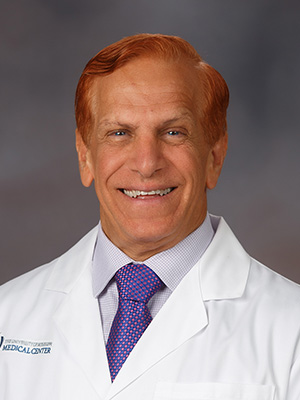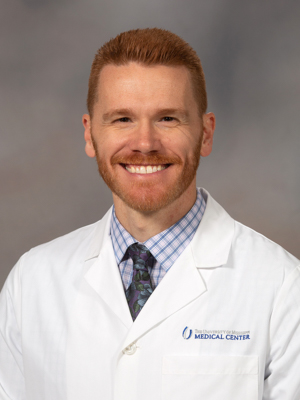Managing your meds a key part of surgery prep
Preparation before having surgery of any type involves a list of boxes to check – starting with having a ride to and from the hospital and arriving on time.
Closely below that on most instructions for surgery patients is how to handle regular medications leading up to the procedure. Experienced surgeons stress communication with your prescribing physician in all cases, though some of the most common meds are fine to take the morning of surgery.

“Other than genetics, diet and personal habits, medications play a critical role in your overall health,” said Dr. Faisal Bukeirat, associate professor of medicine in gastroenterology.
Many commonly-prescribed medicines work to stabilize daily bodily functions, such as those used to control high blood pressure and maintain cardiovascular health. As a result, physicians across specialties agree heart meds and those used to control seizures should be continued up to and including the morning of surgery. Small sips of water with each dose two to four hours before procedure time is best, Bukeirat said.
Instructions for most invasive procedures recommend contacting prescribing physicians at least two weeks prior to surgery when it comes to blood thinners and related meds that in general pose a bleeding risk. In general, patients are asked to stop taking them just before surgery.
“Blood thinners like Warfarin and Plavix should be stopped five days before most invasive procedures, while the newer agents like Eliquis and Xarelto should be stopped 2-3 days before the planned procedure,” Bukeirat said.
Most vitamin supplements and over-the-counter medicines such as non-steroidal anti-inflammatory drugs, or NSAIDs, are fine to take if part of a daily routine, though they’re typically not taken on the day of surgery.

Dr. Jacob Moremen, associate professor of thoracic surgery, specializes in hiatal hernia repair, lung resections and several procedures related to the esophagus. Each carries the aspect of potential stress to the body that can be minimized by simply following pre-surgery instructions to the letter.
“Some medicines can impact your kidney function, for example, in a way that is not a problem day-to-day, but during the stress of surgery may increase your risk for kidney injury,” Moremen said, adding certain ACE inhibitors and drugs used to treat diabetes such as Metformin as examples.
Medical societies in October reversed previous guidelines on taking GLP-1 diabetes and weight loss drugs before surgery. Drugs such as Ozempic and Wegovy tend to slow the process of emptying the stomach. As such, patients had been advised to stop taking them well in advance of going under anesthesia.
However, researchers with several organizations have found no additional negative risks in patients who hadn’t paused their use of the drugs beforehand. What’s best is to urge patients to follow a clear liquid diet for 24 hours prior to procedures such as colonoscopies, researchers said. The organizations include the American Gastroenterological Association, American Society of Anesthesiologists and the American Society for Metabolic and Bariatric Surgery, among others.
“Those medications result in food staying in the stomach longer than normal, and so those societies recommend stopping the medication for one day if it’s a daily medication and for one week if it’s a weekly injectable medication,” Bukeirat said.
For most surgical procedures, attending physicians ask patients to refrain from eating or drinking anything after midnight before surgery.
“Common sense and patient safety direct everything we do in medicine,” Bukeirat said. “And so the final discussion and decision is always done on a case-by-case basis.”
The above article appears in CONSULT, UMMC’s monthly e-newsletter sharing news about cutting-edge clinical and health science education advances and innovative biomedical research at the Medical Center and giving you tips and suggestions on how you and the people you love can live a healthier life. Click here and enter your email address to receive CONSULT free of charge. You may cancel at any time.



